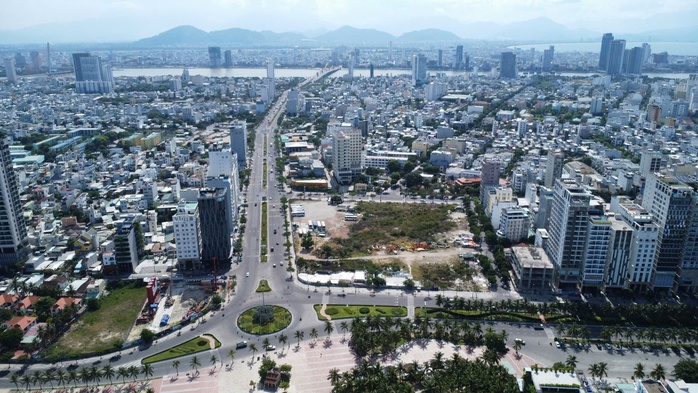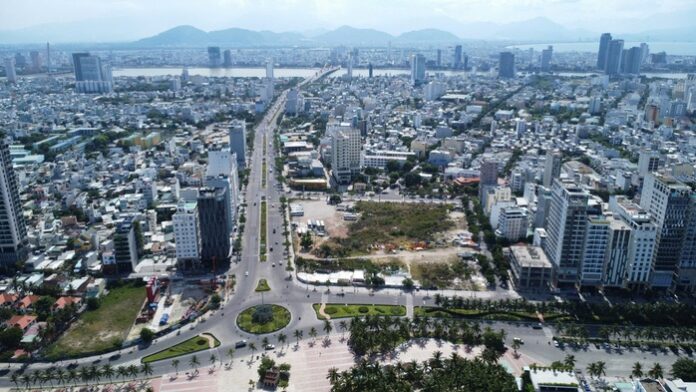In the afternoon of June 21st, Deputy Prime Minister Nguyen Hoa Binh chaired a meeting with leaders of Da Nang city regarding the preparation of necessary conditions for the establishment and operation of the Vietnam International Financial Center, to be located in the city.

The financial center is planned to be located in lots along Vo Van Kiet street in Son Tra district, covering an area of 6.17 hectares.
According to a report presented by Le Trung Chinh, Chairman of the Da Nang People’s Committee, the city has finalized a project proposal for the establishment of the International Financial Center with key development pillars. These include green finance, commercial finance supporting small and medium-sized enterprises, financial services for non-residents, cross-border trade, as well as pilot projects in digital assets, digital money, and digital payments.
The center will also prioritize attracting foreign investment funds, small-scale venture capital funds, fostering financial technology (fintech) development, and promoting innovation in the financial sector. Additionally, there are plans to establish a specialized legal and consulting services ecosystem.
In terms of infrastructure, Da Nang has prepared a centrally located land fund with a radius of just 5-10 km from the international airport, along with a synchronized telecommunications infrastructure and supporting services.
During the initial phase, the city will temporarily locate the preparatory office of the International Financial Center in a 22-story building within the Software Park No. 2, expected to be completed by the end of 2025. The city will also promote investment in a 18-hectare coastal land fund to construct specialized infrastructure that meets international standards in the 2025-2027 period.
Human resource preparation has also been a focus. The city has established a 27-member preparatory committee and an international advisory board to support strategy formulation. Additionally, 10 officials, including associate professors and doctors specializing in finance, banking, and international trade law, have been sent on a short-term training course at the Vietnamese-German University. It is expected that in the third quarter of this year, officials will be sent for internships at international financial centers.
Furthermore, the Da Nang People’s Committee has included a policy to attract talented individuals in the agenda of the upcoming HDRC session in June. They are also coordinating with the University of Da Nang and specialized schools to develop in-depth training programs in international finance and fintech.
The city has garnered interest from over 10 potential investors who have expressed their desire to accompany Da Nang in the fields of green finance, financial technology, and innovation development.
During the meeting, Da Nang proposed that the Government soon issue a decree providing specific guidance on the mechanisms for the operation of the International Financial Center, especially regulations related to fintech sandboxes, digital asset transactions, and special financial mechanisms.
The city also suggested the establishment of an independent management and supervision agency based in Da Nang to ensure autonomy in management and promote the progress of key infrastructure projects, integrating the center into the global financial data region.
Deputy Prime Minister Nguyen Hoa Binh shared that the Government has officially submitted a draft resolution on the International Financial Center in Vietnam to the National Assembly. The National Assembly is currently discussing and contributing opinions to complement and perfect the draft resolution, with the aim of adopting the resolution soon.
The Deputy Prime Minister also highly appreciated Da Nang’s preparation efforts and emphasized that the early adoption of the National Assembly’s resolution would create a solid legal basis for the formation of the International Financial Center.
Deputy Prime Minister Nguyen Hoa Binh requested that Da Nang continue to thoroughly prepare all necessary conditions and closely coordinate with ministries, sectors, and international partners to ensure that the center can operate as planned and achieve the highest efficiency.





































